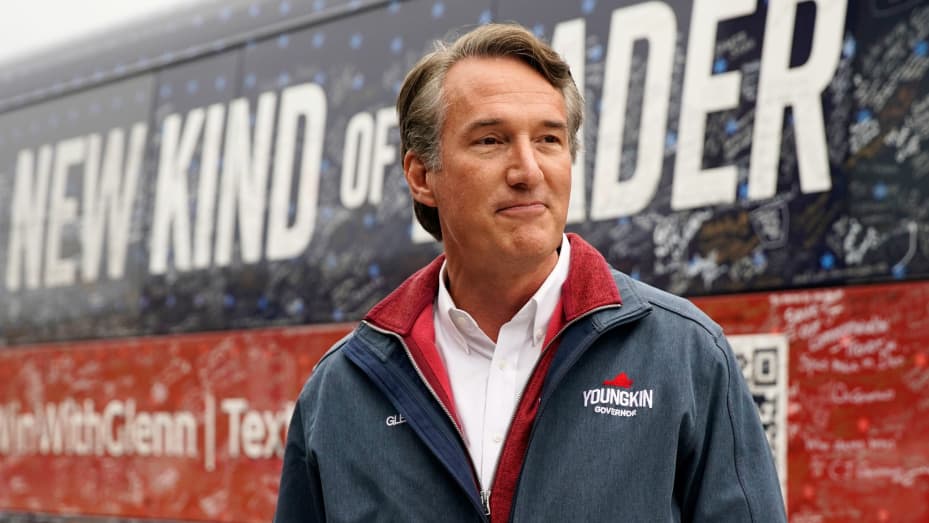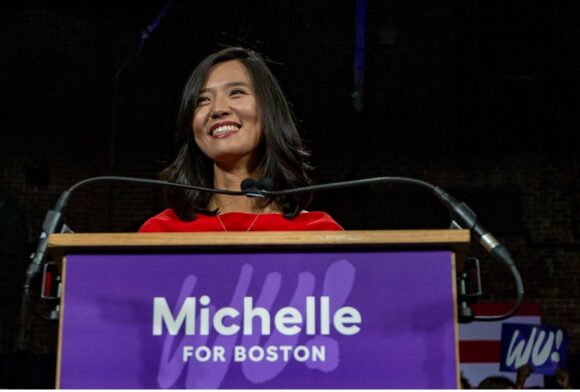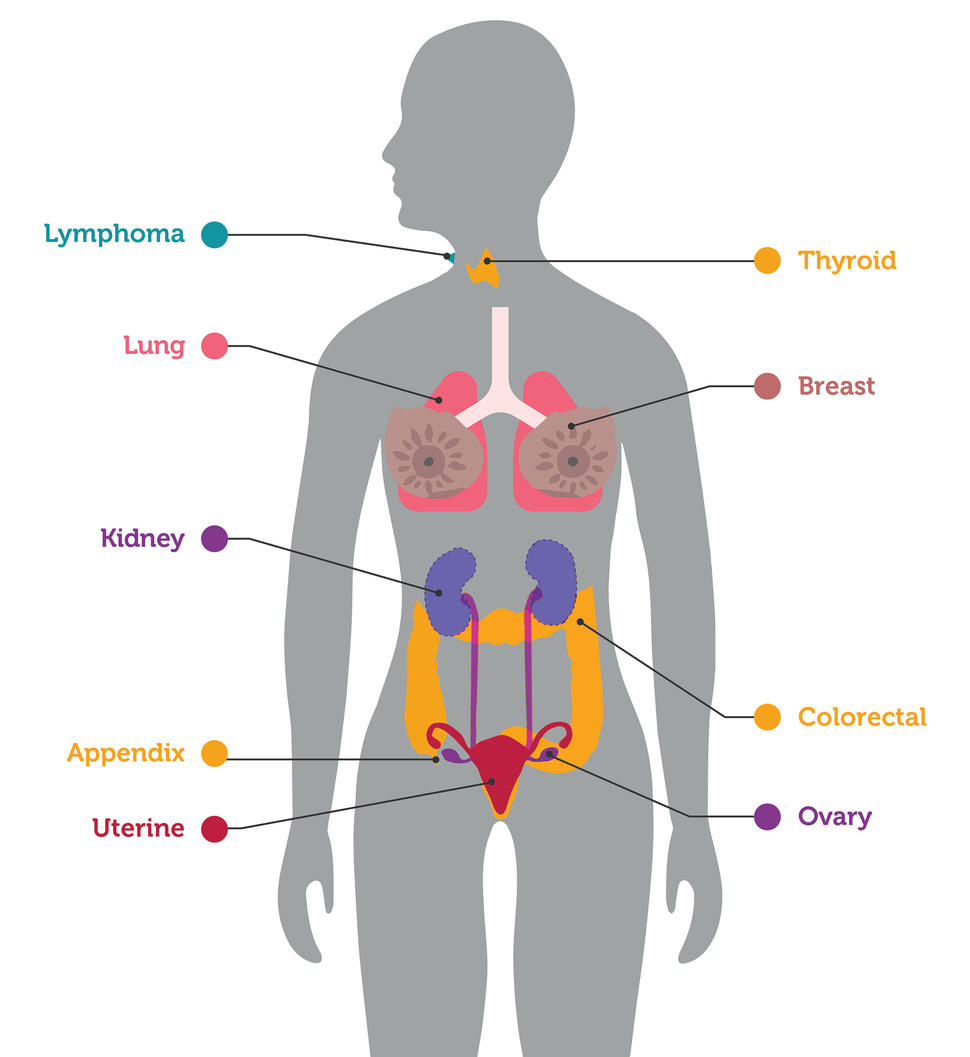
Glenn Youngkin
Dear Commons Community,
Republicans claimed the governorship of Virginia for the first time in more than a decade on Wednesday, electing the businessman Glenn Youngkin and presenting their party with a formula for how to exploit President Biden’s vulnerabilities and evade the shadow of Donald J. Trump in Democratic-leaning states.
Mr. Youngkin, 54, a wealthy former private equity executive making his first run for office, elevated education and taxes while projecting a suburban-dad demeanor to demonstrate he was different from Mr. Trump without saying so outright. He defeated former Gov. Terry McAuliffe, a Democrat who, with Mr. Trump out of office, struggled to generate enthusiasm among liberals at a moment when conservatives are energized in opposition to Mr. Biden.
The Associated Press called the race for Mr. Youngkin shortly after 12:30 a.m. Wednesday morning, hours after the polls closed on Tuesday night. As reported by the AP and The New York Times.
Addressing supporters in Northern Virginia, Mr. Youngkin said the state had reached “a defining moment.”
“Together we will change the trajectory of this commonwealth,” Mr. Youngkin said after taking the stage and clapping along to the blues-rock anthem “Spirit in the Sky.”
The election took place at a moment when voters are deeply frustrated, weary from the still-lingering coronavirus pandemic and irritated at the costs and scarcity of goods. Large majorities in polls say that the country is on the wrong track, a foreboding indicator for the party in power.
No less bracing for Democrats was a second gubernatorial election unfolding in New Jersey: the incumbent governor, Philip D. Murphy, was narrowly trailing a relatively obscure Republican challenger, Jack Ciattarelli, deep into the night. A mainstream liberal with ties to the White House, Mr. Murphy was staking his hopes for a comeback on a strong performance in several solidly Democratic areas where votes were slow to report.
But the unexpected closeness of the race underscored the overall vulnerability of the Democratic Party. Much like Mr. Youngkin in Virginia, Mr. Ciattarelli appeared to benefit from robust turnout in rural and conservative-leaning areas of the state while making inroads in denser areas such as Bergen County, the populous suburb of New York City.
Unlike Mr. Youngkin, Mr. Ciattarelli, a former state legislator, had no vast personal fortune to spend on his candidacy and national Republicans looked at his campaign as an extreme long shot. Even if Mr. Murphy prevails, it is certain to be by a minute fraction of the 16-point margins by which both he and Mr. Biden carried the state in their last campaigns
Mr. Youngkin’s surprise victory in Virginia, however, represents the starkest warning yet that Democrats are in danger. It was likely to prompt additional congressional retirements, intensify the intraparty tug of war over Mr. Biden’s agenda and fuel fears that a midterm electoral wave and Mr. Trump’s return as a candidate are all but inevitable.
“The MAGA movement is bigger and stronger than ever before,” Mr. Trump said in a statement Tuesday night.
In the first competitive statewide election of Mr. Biden’s presidency, Mr. McAuliffe worked assiduously to link Mr. Youngkin to the previous president. Inviting a parade of prominent national Democrats to campaign with him, the former governor sought to nationalize the race and effectively transform a gubernatorial contest into a referendum on Mr. Trump in a state he lost by 10 points last year.
But voters appeared far more eager to register their frustration with the Democrats in control of Washington and Richmond, the state capital, and fissures appeared in the coalition of moderate whites, people of color and young liberals that elected Mr. Biden in 2020. In cities, suburbs and exurbs that Mr. Biden had handily carried, Mr. McAuliffe’s margins shrank dramatically.
Mr. McAuliffe never fully articulated his own vision for a second term and received no favors from Mr. Biden or his party’s lawmakers. They spent much of the fall locked in contentious negotiations over Mr. Biden’s infrastructure and social welfare proposals, failing to reach a consensus that could have at least offered Mr. McAuliffe some good news to trumpet.
Democrats in Virginia have tended to win statewide elections on a message of can-do pragmatism. The stalemate in Washington cast the party in a different light.
Taking the stage in McLean before the race was called, Mr. McAuliffe thanked his family and supporters but did not concede. “This is a different state,” he said of Virginia following his governorship and that of his successor, Gov. Ralph S. Northam. “We are going to continue that fight.”
Significantly, Mr. Trump appeared unusually content to be kept at arm’s length by Mr. Youngkin, remaining mostly silent as the Republican candidate declined to invite him to the state. Mr. McAuliffe even acknowledged to reporters on Monday that “from a political perspective” it would have been better for him had the former president not been banished from Twitter so Mr. Trump could have had a platform from which to insert himself into the campaign.
For Republicans, particularly those uneasy with Mr. Trump and battered by the party’s string of losses on his watch, Mr. Youngkin’s triumph delivered a moment of exultation. Their win in Virginia demonstrated that they can reclaim some suburban voters without fully embracing or rejecting Mr. Trump.
Clad in a fleece vest and sporting a smile on the campaign trail, Mr. Youngkin happily claimed support from so-called Never Trumpers and Forever Trumpers, while otherwise voicing a center-right agenda in a state where Republicans have not won statewide since 2009.
In part because Mr. McAuliffe was so dedicated to his strategy of inserting Mr. Trump into the race, Mr. Youngkin evaded scrutiny about his own views on policy, which on issues like abortion and same-sex marriage were to the right of most Virginia voters.
The race illustrated that voters are chiefly focused on day-to-day quality of life issues related to the economy and the pandemic, and they blame Democrats for failing to fully address these matters.
The Virginia results also suggest that Mr. Trump’s exit has at least loosened the Democrats’ hold on the college-educated voters who powered their gains over the last five years.
It’s highly unlikely, however, that the former president will let other Republicans sidestep him in next year’s midterm elections the way Mr. Youngkin did. The party’s victory in Virginia may only lull Republicans into believing that Mr. Trump no longer poses a dilemma and can be indefinitely averted, the sort of thinking many party leaders have clung to for more than six years.
For now, though, it’s Democrats who will suffer the most as their moderate-versus-liberal intraparty tensions flare in Washington and beyond and officials blame one another for the defeat.
The Democrats have a year to get their act together! Not likely!
Tony
 James Estrin/The New York Times
James Estrin/The New York Times Michelle Wu speaks to supporters after winning the election to be Mayor of Boston. (Jesse Costa/WBUR)
Michelle Wu speaks to supporters after winning the election to be Mayor of Boston. (Jesse Costa/WBUR)



